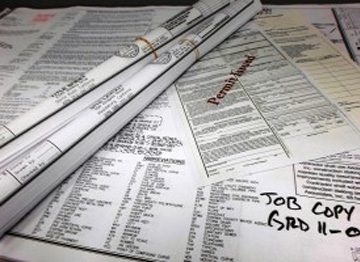
Permitting Challenges
Depending on the agencies involved, the permit process can often be complex and confusing, with a myriad of rules. Any mistakes or missed documents can delay completion and greatly increase project costs.
A Smoother Process with Adobe
When you choose Adobe Associates Inc. for permit assistance you’ll enjoy the advantage of more than 40 years of experience working with local agencies; we know what each agency needs and why they need it. The permit process can be overwhelming, let us take on the challenges while you focus on what’s important.
Get a Full Scope Up-Front
Misunderstanding the permitting processes can significantly hinder the development of your project, that’s why we always provide a complete view of the project scope from the beginning. We can help you to know which permits are required and why, so you don’t hit unexpected roadblocks later.
We Guide your Permit through the Process
During your project, we will prepare all applications and guide the project through the entire process until they are issued. Choosing us for your permitting means we will be informed of any project revisions made by other divisions.
Agencies We Have Worked With
City of Calistoga Public Works, Town of Windsor, Town of Healdsburg, City of Napa, Town of Yountville, City of San Pablo, Contra Costa County, Contra Costa Fire, City of Sebastopol, Sonoma County Water Agency, SCWA, Sonoma Clean Water, Department Of Agriculture/Weights & Measures, Sonoma County Agricultural Commissioner, California State Water Resources Control Board, Sonoma Valley Fire and Rescue Authority, California Northcoast Regional Water Quality Control Board, City of Belvedere Building Department, Town of Tiburon Building Department, City of Mill Valley, Caltrans Office of Encroachments, County of Sonoma, City of Santa Rosa, City of Cotati, City of Healdsburg, City of Calistoga, California State Department of Fish and Wildlife, County of Marin Public Works, County of Napa, Caltrans, City of Rohnert Park, City of Petaluma.
From first-time project owners to seasoned development veterans, we can help simplify the often tricky and puzzling permitting process.